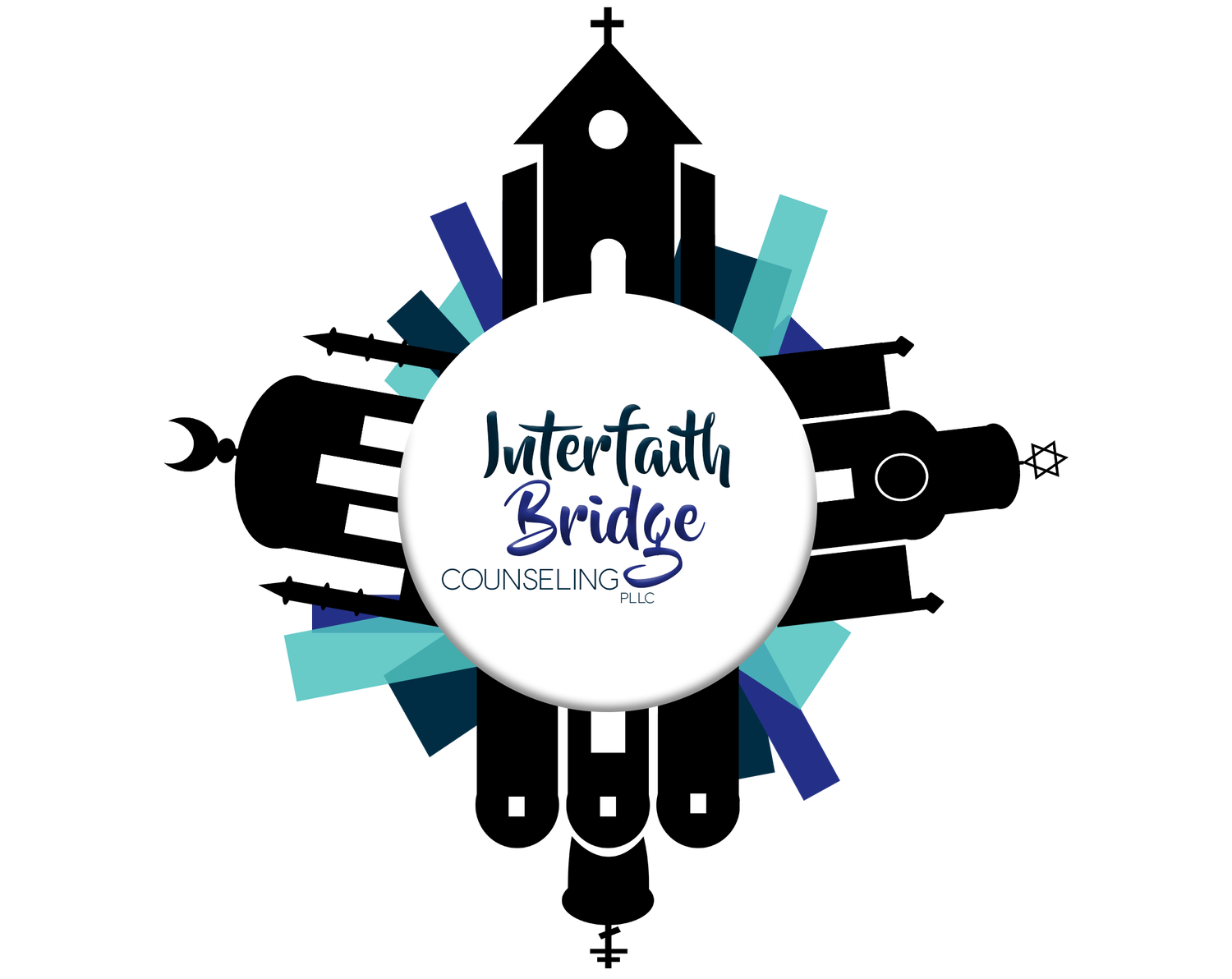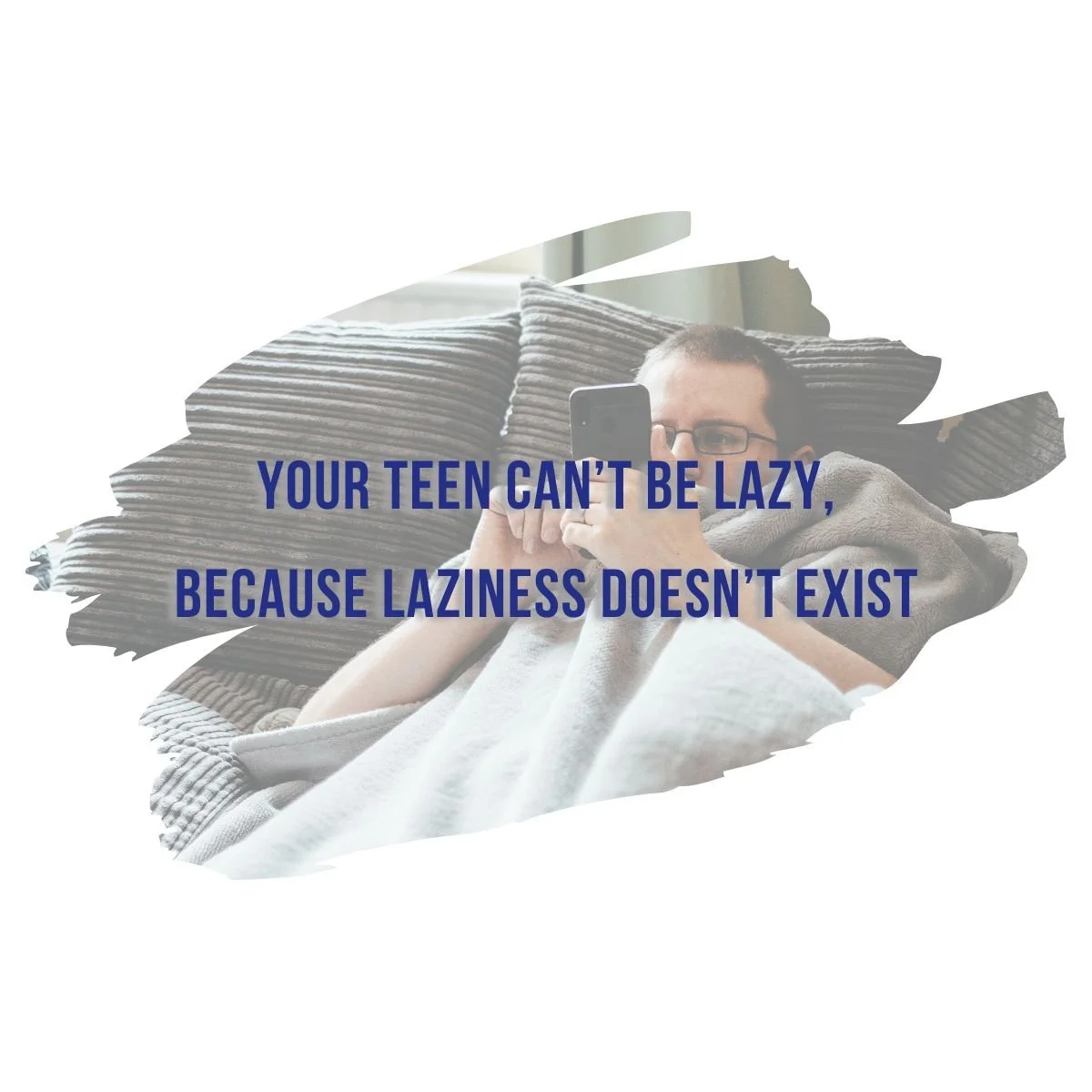Your Teen Can’t Be Lazy, Because Laziness Doesn’t Exist
Read Time: 14 minutes
Picture this: your teen is sprawled across the couch, blanket pulled over their head, TikTok blasting on repeat. Their room is a mess, homework is suspiciously untouched, and all you can think is, Why are they so lazy?!
We hear this from parents all the time. And we get it–it’s frustrating to watch your teen or college-aged kid not do the things they’re supposed to be doing. But here’s the twist: what if your teen isn’t lazy? What if laziness isn’t real at all?
Let’s explore what social psychologist Dr. Devon Price, author of Laziness Does Not Exist, has to say, along with what might really be going on with your teen, and why their behavior could be a sign of survival, not slacking.
The Myth That Refuses to Die: Productivity = Worth
Dr. Price breaks down our cultural obsession with hustle into three toxic beliefs:
You can’t trust your own need for rest (those are “weaknesses” you should push through.)
There is always more you could be doing.
Feel familiar?
This belief system doesn’t just live in boardrooms or job interviews; it seeps into how we parent, how we talk to ourselves, and how we interpret our teens’ behavior. Often, we don’t even realize we’re doing it.
When your teen or young adult sleeps in, cancels a shift at work, or skips a homework assignment, many parents jump to shame or panic: They’re falling behind! They don’t care! They’re just lazy!
But what if your kid is doing something radical? What if they’re quietly resisting a system that glorifies burnout, and choosing rest instead?
Psst...by the way…
WONDERING WHAT YOUR TEEN’S “LAZINESS” COULD BE HIDING?
THERAPY COULD HELP
Where the “Laziness Lie” Comes From
Let’s zoom out for a second.
The idea that rest is weakness and productivity is virtue isn’t a modern-day problem. It’s rooted in centuries of harmful ideology. In the Puritan era, hard work was seen as a sign of being “chosen” or morally superior. Needing rest was viewed as dangerous, even sinful.
This mindset justified slavery, indentured servitude, and the exploitation of laborers. Later, it shaped American myths like the “self-made man,” the welfare queen, and the bootstrap narrative (spoiler: you can’t pull yourself up by your bootstraps.)
This ideology tells us that those who struggle, especially marginalized or disabled people, just aren’t trying hard enough. In classrooms and workplaces, this belief shows up as suspicion toward anyone who slows down, asks for help, or dares to take a break.
It’s no wonder so many teens and young adults internalize this idea. And when they can’t keep up, they turn that shame inward.
The “Laziness Lie” in Schools
The education system itself often reinforces the laziness myth. Schools were designed in the industrial era to prepare kids for factory work, not creativity, flexibility, or rest. Think: rigid schedules, long days, and standardized everything.
When a teen doesn’t conform to this system, especially if they’re neurodivergent, they’re often labeled as lazy, difficult, or defiant.
Imagine a student with ADHD who forgets assignments or fidgets in class. Instead of being supported, most of the time they’re first told to “just try harder.” It’s not a matter of willpower. It’s about wiring. We’ve seen brilliant, empathetic, creative young people get shut down by a system that doesn’t fit them, and then blamed for not fitting in.
Why “Lazy” Teens Might Actually Be Overwhelmed, Burnt Out, or Brave
Let’s bring it back to your couch-surfing teen.
When a young person stops trying or appears unmotivated, many parents assume it’s a character flaw. But in reality, what looks like “laziness” is often a symptom of something deeper. And that something is often self-protection.
Here’s what could be happening instead:
1. They’re Burnt Out
Life today, especially for young people, is a lot. Honors classes, part-time jobs, club sports, social media pressure, family responsibilities, poor job markets, demanding careers and all of it stacked on a still-developing brain. When your teen or young adult seems checked out, it might be because they’re running on fumes trying to keep up with our overwhelming societal “norms.”
As Dr. Price puts it, “Rest is not a reward. It’s a requirement.”
2. They’re Battling Executive Dysfunction
Executive function is your brain’s air traffic control system. It manages focus, organization, time, and task initiation. Young adults with ADHD, anxiety, depression, or trauma often struggle with this, so getting off the couch and starting homework or a job application might feel genuinely impossible, not just undesirable.
Saying “just try harder” to someone with executive dysfunction is like telling someone with a broken leg to just run.
3. They’re Setting Boundaries (Even If They Don’t Know It)
Choosing rest, saying no to extra shifts, or turning down another extracurricular may look like laziness, but it can actually be a healthy boundary. Your kid may be developing the wisdom to know when enough is enough. That’s not failure, that’s pretty incredible growth.
What Parents Can Do Instead of Labeling Their Teen “Lazy”
If you’ve made it this far, thank you. You’re willing to take a compassionate look at your teen and unlearn some deep cultural programming. Here are five practical ways to shift your mindset and continue to support your teen or young adult:
1. Get Curious, Not Critical
Instead of jumping to judgment, ask: What’s behind this behavior? Are they tired, overwhelmed, discouraged, scared? Curiosity opens connection. Criticism closes it.
2. Validate Rest
Normalize breaks. Celebrate naps. Model boundaries. Let your teen know they don’t have to earn their rest and that it’s not shameful to slow down.
3. Watch Your Language
Phrases like “lazy,” “unmotivated,” or “not trying hard enough” carry shame. Instead, try “seems overwhelmed,” “needs support,” or “might be struggling.”
4. Check In with Their Capacity
If your teen or young adult used to juggle five activities and suddenly can’t handle one, their nervous system may be maxed out. Help them reassess and reduce the load.
5. Consider Therapy
A therapist (like someone from our team!) can help your child explore what’s underneath the burnout, support their executive function, and develop self-compassion, all without the shame spiral.
Your Teen/Young Adult Is Not Broken. The System Might Be.
So the next time you find your teen or young adult curled up on the couch instead of crushing it, take a breath. What you’re witnessing may not be laziness; it might be resistance, resilience, or recovery.
At Interfaith Bridge Counseling, we believe teens and young adults aren’t failing to thrive; they’re surviving a world that demands too much and offers too little in return. We're here to help them build the skills, support, and self-acceptance they need to redefine success on their own terms.
Because your kid isn’t lazy. They’re human. And that’s more than enough.
If you’re a resident of Colorado, reach out today for a complimentary call. We’d love to learn more about you and your young adult or teen and let you know how we can help.
Until next time,
About Our Author | Lena McCain MA, LPC. 0017723
Lena McCain is our Founder here at Interfaith Bridge Counseling, where she continues her support as our Clinical Director. She also holds a Master of Arts degree in Clinical Mental Health: Mindfulness-Based Transpersonal Counseling Psychology from Naropa University.
Lena’s drive and passions lie in the realm of community building and youth collaboration, which she has spent the last 12 years studying with an emphasis on one’s exploration of personal growth, community healing, and multicultural values. Lena’s expertise in these areas and the therapeutic field acts as a reminder to our community, teens, and young adults that they are not alone in their experience of life.



![[Image] Scribble picture of Caucasian woman with hands on her head in front of a graffiti painted wall.](https://images.squarespace-cdn.com/content/v1/63d95f727c30a3483f4424e4/6b1ef401-b6f4-4af2-92f6-daeaf3cca61b/Lena-McCain-Group-Therapist-Teen-Chat-Social-Skills-CO.jpg)